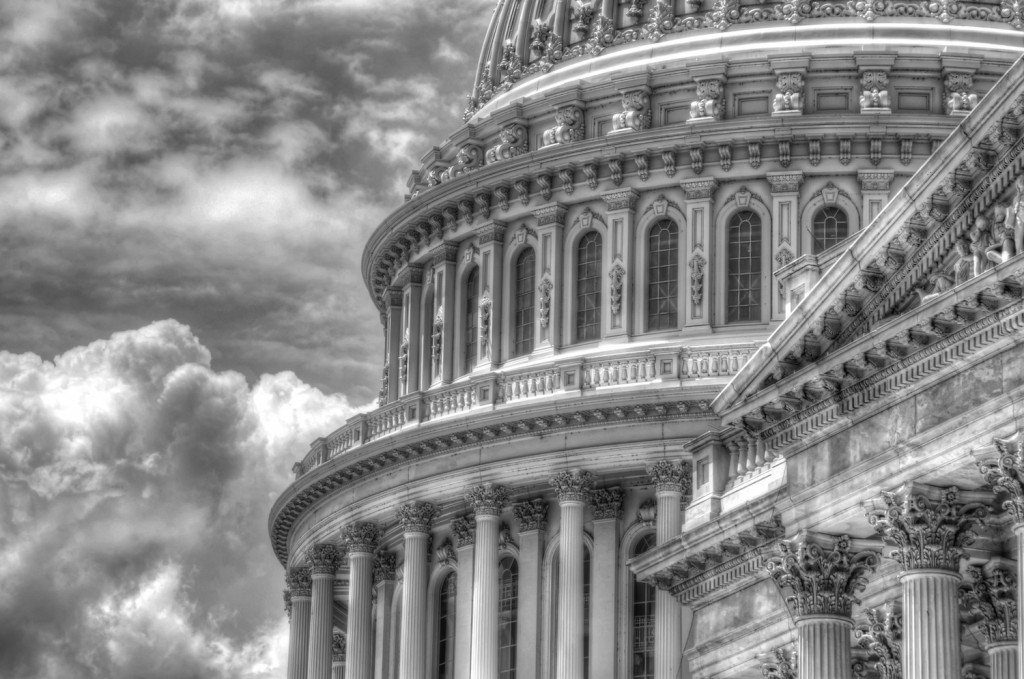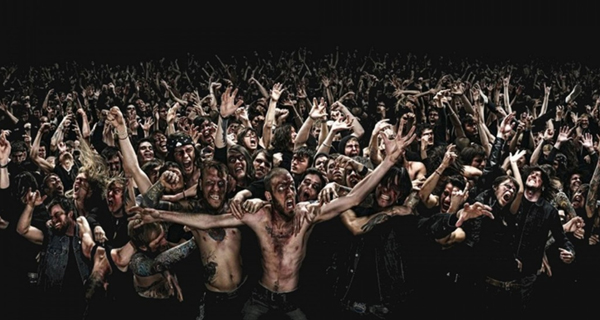====================
A sermon offered on the Fifth Sunday after Epiphany, February 8, 2015, to the people of St. Paul’s Episcopal Church, Medina, Ohio, where Fr. Funston is rector.
(The lessons for the day were Isaiah 40:21-31; Psalm 147:1-12,21c; 1 Corinthians 9:16-23; and Mark 1:29-39 . These lessons can be read at The Lectionary Page.)
====================
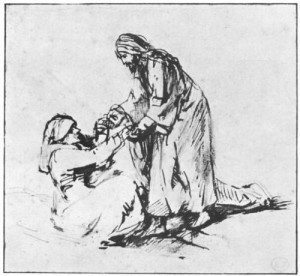 After I did my first sermon-prep read through of this morning’s gospel I thought, “There are two stories here.” Then I thought, “No, there are three.” And then I realized that there are really more stories here than I can count.
After I did my first sermon-prep read through of this morning’s gospel I thought, “There are two stories here.” Then I thought, “No, there are three.” And then I realized that there are really more stories here than I can count.
Mark, of course, is interested in telling only one story, Jesus’ story, and so he gives us these glimpses into the lives of others only insofar as they serve to move his main story along.
We haven’t even reached the end of Chapter One yet and already Jesus has been baptized in a river, heard the voice of God, spent forty days in the wilderness tempted by Satan and waited on by angels, recruited four disciples, taught in a synagogue, cast out a demon, and (in today’s bit) healed a woman in a private home, gone back out into the wilderness to pray, and then traveled throughout the region preaching in more synagogues and casting our more demons.
And Mark has told us all of that in only 39 sentences. Mark probably would have failed a creative writing class and definitely would have failed a journalism class! He hasn’t even come close to answering those all important questions known to every reporter and every novelist on the planet: Who? What? When? Where? How? and Why? He hasn’t come close to answering them because he doesn’t care; unless those are questions about Jesus, Mark simply isn’t interested in them.
But I am! I would like to know some details. I’m like Karoline Lewis, Associate Professor of Preaching at Luther Seminary in St. Paul, Minnesota, who in writing about Simon’s mother-in-law repeatedly makes the parenthetical observation, “I so wish she had a name!” I would love to know her name. In fact, not only would I like to know who she is, I’d like to know what she’s doing there! Why is she in Simon’s household at all?
Is she there because she’s widowed and, bound by the law of Moses to be dependent on some man, has no male relatives other than her daughter’s husband to rely on for support? Is she there because Simon’s widowed and needs her help to raise his children? (Are there any children to raise?) Why is Simon’s mother-in-law the one who (after arising from her sickbed) performs the duties of hostess which normally would be those of a wife or an elder daughter? For that matter, why was she sick in the first place? What was actually wrong with her? There are more stories here than I can count because Mark hasn’t told them, because he hasn’t answered any of these questions.
Mark isn’t interested in answering the questions; the answers aren’t necessary to moving his story of Jesus along, but they would help me in understanding my story of Jesus. I know I’m not very much like Jesus, though I try to be; I am, however, a lot like those other people, like Simon or his mother-in-law or that man in the synagogue we heard about last week. If I could know more about how they related to and followed Jesus, it would help me as I stumble along trying to do the same.
I wish we knew more about the nameless Mrs. Simon’s mother (I wish Simon’s wife had a name!) because it would help me understand this statement: “The fever left her, and she began to serve them.” I read that statement and my 1960s-70s college student, sexual revolution, women’s liberation, gender equality heart just goes all cold and still, and I think, “Really? The first thing an elderly woman does on being relieved of sickness is get up and cook for the men?” But, you see, that’s my story, not Mark’s; that’s me reading into the text, instead of setting aside my preconceptions and letting the text read out to me. If I read the text carefully and in the context of the whole story of Jesus (as told by Mark’s and the other gospel writers), my gender-equality objections may not entirely fade away, but at least they are answered.
Here’s how . . . .
First, there’s the way Jesus seems to have refused to countenance the position of women in First Century Jewish society. In the Palestine of Jesus’ day, women were subservient men; they had no rights of their own; they could not own property; they were completely dependent upon the eldest male member of their family (which is one reason why Simon’s mother-in-law may have been living in his household). But we should remember that Jesus would have none of that! Jesus spoke openly with women when that was absolutely contrary to the norms of his culture as, for example, when he converse with the woman at Jacob’s well in Sychar (Jn 4) or when he prevented a crowd from stoning the woman caught in adultery (Jn 8:3-11). Jesus believed that a woman had as much right to study Torah with him as a man might, as when (over her sister’s objection) he permitted Mary of Bethany to sit at his “feet and listen to what he was saying.” (Lk 10:38-42) Jesus allowed women to whom he was not related to touch him, as when (in the home of another Simon) he allowed a woman known to be a sinner to bathe and anoint his feet (Lk 7), or when Mary of Bethany did the same just before his crucifixion (Jn 12:3). Would Jesus, who seemed to value women as the equals of men, have allowed an elderly woman to wait on him in a subservient manner? I wouldn’t think so.
Second, there’s that word “serve.” In this passage the translation of the Greek original is not incorrect, but it’s a certainly a loaded one! A 21st Century Christian American like myself hears inequality in that word “serve;” I hear a disparity in social position between the one who serves, the servant, and the one who is served, the master. I cannot shake the sense that the one serving is subservient, and that is especially so when reading Holy Scripture in English translation.
There are a couple of Greek words we should learn here; they both are interpreted as meaning “to serve” in modern translations of the New Testament. One is douleuo; its root is doulos, a noun meaning “slave.” One who serves in the since of douleuo serves as a slave serves. Jesus frequently uses this as a metaphor for the Christian life. When, for example, he said, “A disciple is not above the teacher, nor a slave above the master,” it is this word doulos that he uses; not simply “servant,” but “slave.” (Mt 10:24) And again, when he instructs the Twelve that “whoever wants to be first must be last of all and servant of all,” it is this word doulos, “slave,” that he uses. (Mk 9:35) And when he reminds us all that “no slave can serve two masters; for a slave will either hate the one and love the other, or be devoted to the one and despise the other. You cannot serve God and wealth,” it is again this word doulos, “slave,” and this kind of servitude – slavery – that he describes. (Lk 16:13)
And that is what we hear, what we understand when we read this word “serve” in English translation. We hear it here: Simon’s mother-in-law rose from her sickbed and like a subservient slave she waited on these men. Except she didn’t! That’s not what the Greek says even though that’s how we hear it when the second of the Greek words is translated as “serve” and that word, used in this passage, is diakoneo. As a noun, the word is diakonos. The verb means “to minister;” the noun we is the root of our word “deacon.” This is not the servile submission of a slave. When Mark, or any of the gospel writers, uses this term, something very different is intended: this is the willing ministration of one equal to another.
It is instructive to look at other instances where Mark uses the word diakoneo; this author uses the word only four times! The first is when Jesus is in the desert for forty days and Mark tells us that “the angels waited on him.” (Mk 1:13) The second is in today’s gospel reading. The third is when Jesus tells his disciples, “the Son of Man came not to be served but to serve.” (Mk 10:45) The last is when Mark describes those who were present at Christ’s crucifixion: “There were also women looking on from a distance; among them were Mary Magdalene, and Mary the mother of James the younger and of Joses, and Salome. These used to follow him and provided for him when he was in Galilee; and there were many other women who had come up with him to Jerusalem.” (Mk 15:40-41) In that last, the word translated “provided for” is diakoneo. This then is the sort of “serving” Simon’s mother-in-law does: ministering to Jesus and his disciples in the manner of the angels, serving as Jesus himself came to serve, providing for Jesus and the others as the women at the cross had provided for him.
Episcopal nun and priest, Suzanne Guthrie, writes, “Something more than healing occurs when Jesus ‘grasps’ her. The word used is the same as the word for Jesus’ resurrection – he ‘raises her up’. She embodies the Easter mystery of resurrection and the Pentecost mystery of apostleship – of service. …. She’s a mother of the church. A deacon. A template of holiness.” (Edge of the Enclosure)
Cuban theologian Ofelia Ortega observes, “This woman gets up and turns the Sabbath into a paschal day of service to others. Jesus does not command her. She is the one that assumes the initiative and awaits the consequences, discovering the value of mutual service above the sacredness of the Sabbath.” (Feasting on the Word Year B, Vol. 1)
This is the story Mark does not tell. Mark is interested only in moving forward his tale of Jesus, his life and ministry, his death and resurrection, so he does not give us any details about other stories that he considers tangential. If we want to learn from those other stories, we have to ferret out the details ourselves; we have to read Mark’s brief mention of other people along the way within the larger contexts of Mark’s whole story and the gospel story as told by others. When we read the story of Simon’s mother-in-law in this way, we find much more than the story of a subservient First Century woman merely doing what was expected of her. We learn from and are called to emulate the ministry of a woman many scholars have called “the first deacon of the church,” who rose restored from her sickbed, made well and whole by Son of God, and offered herself in service to others.
As Professor Lewis said, “I so wish I knew her name.” Amen.
====================
A request to my readers: I’m trying to build the readership of this blog and I’d very much appreciate your help in doing so. If you find something here that is of value, please share it with others. If you are on Facebook, “like” the posts on your page so others can see them. If you are following me on Twitter, please “retweet” the notices of these meditations. If you have a blog of your own, please include mine in your links (a favor I will gladly reciprocate). Many thanks!
====================
Father Funston is the rector of St. Paul’s Episcopal Church, Medina, Ohio.
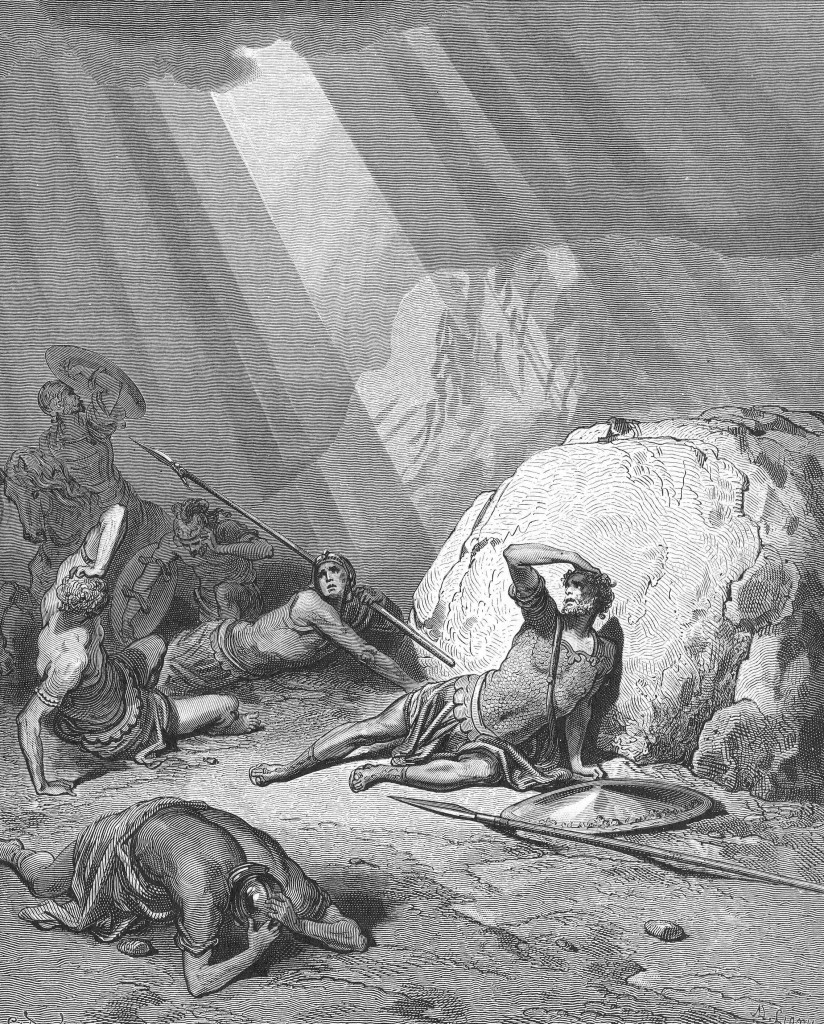 “I heard a voice saying in Hebrew: ‘I have a job for you. I’ve handpicked you to be a servant and witness to what’s happened today, and to what I am going to show you. I’m sending you off to open the eyes of the outsiders so they can see the difference between dark and light, and choose light, see the difference between Satan and God, and choose God.'” (Acts 26:16-18a, The Message)
“I heard a voice saying in Hebrew: ‘I have a job for you. I’ve handpicked you to be a servant and witness to what’s happened today, and to what I am going to show you. I’m sending you off to open the eyes of the outsiders so they can see the difference between dark and light, and choose light, see the difference between Satan and God, and choose God.'” (Acts 26:16-18a, The Message)  Tonight we gather once again to celebrate a memory, the memory of the birth of Christ, the Christ who is about to be born again as he is every year. We don’t really know if he was born at this time of the year; in fact, most scholars agree he wasn’t. But that doesn’t matter. It isn’t the date that we celebrate; it is his birth, then and in our lives each time we remember.
Tonight we gather once again to celebrate a memory, the memory of the birth of Christ, the Christ who is about to be born again as he is every year. We don’t really know if he was born at this time of the year; in fact, most scholars agree he wasn’t. But that doesn’t matter. It isn’t the date that we celebrate; it is his birth, then and in our lives each time we remember.
 When Philip told Nathanael that he had found the Messiah and that he was the son of a carpenter from Nazareth, Nathanael’s immediate response was, “Can anything good come from Nazareth?” (Jn 1:46). Obviously Nazareth had a reputation, and not a good one. I often wonder if, as Jesus was making his way through the Holy Land, especially early in his ministry when he wasn’t well-known, people would ask him, “What was it like growing up in Nazareth?”
When Philip told Nathanael that he had found the Messiah and that he was the son of a carpenter from Nazareth, Nathanael’s immediate response was, “Can anything good come from Nazareth?” (Jn 1:46). Obviously Nazareth had a reputation, and not a good one. I often wonder if, as Jesus was making his way through the Holy Land, especially early in his ministry when he wasn’t well-known, people would ask him, “What was it like growing up in Nazareth?”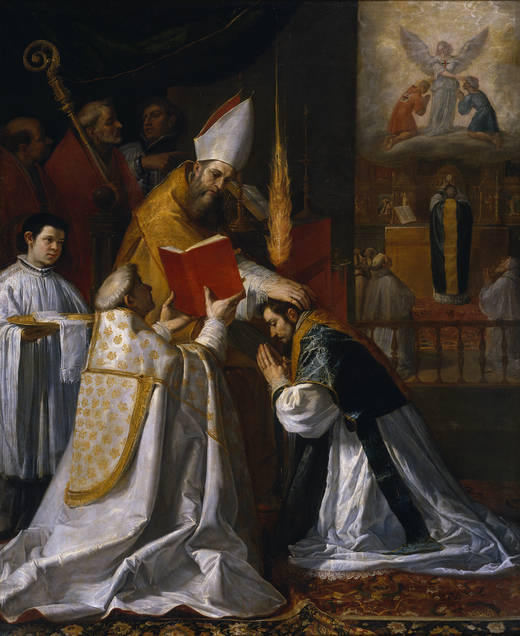 Tonight, as my diocese begins its annual governing convention in traditional fashion with a celebration of the Holy Eucharist, we will doing so in the context of an ordination – two ordinations, in fact, one to the diaconate and one to the presbyterate. This morning’s reading from Ben Sira is lengthy description of the glories of the ceremonial priesthood. One might have expected the church to have made this one of the potential readings for a presbyteral ordination, but in its wisdom, it has not.
Tonight, as my diocese begins its annual governing convention in traditional fashion with a celebration of the Holy Eucharist, we will doing so in the context of an ordination – two ordinations, in fact, one to the diaconate and one to the presbyterate. This morning’s reading from Ben Sira is lengthy description of the glories of the ceremonial priesthood. One might have expected the church to have made this one of the potential readings for a presbyteral ordination, but in its wisdom, it has not.